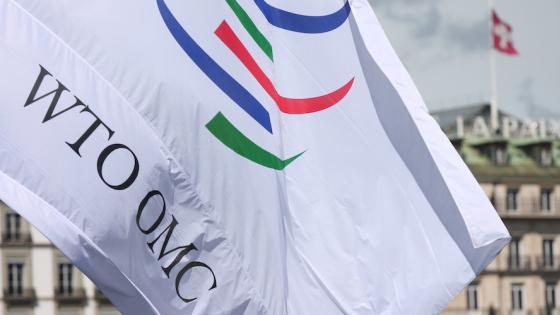The WTO dispute settlement system is in crisis, endangering the future of the organisation. The proximate reason for alarm is the dwindling number of Appellate Body (AB) members, the result of the US blocking new appointments as the terms of sitting members expire. While some countries may share some of the concerns that the US delegation has advanced before the WTO, the US is alone in its apparent willingness to “burn the village to save it”.
On 11 December 2019, there will be only one active AB member. This will make the appeals process of the WTO dysfunctional, given that a minimum of three AB members are needed to consider an appeal of a panel report. Panels keep being established, however, suggesting that WTO Members continue to have confidence in the dispute settlement system even if this does not include the AB. Moreover, the rest of the WTO institutional apparatus remains active, including plurilateral negotiations and deliberations on a variety of subjects, the possibility to raise “specific trade concerns” in WTO Committees and the regular operation of the Trade Policy Review Mechanism and its associated scrutiny of national trade-related policies.
While the continued operation of these WTO mechanisms is a positive sign of continued multilateral engagement, many WTO Members have also made clear that they regard a dysfunctional AB as a serious problem for the trading system. One reason is that, depending on how WTO Members interpret the text of the Dispute Settlement Understanding, panel reports may no longer be adopted automatically if disputing parties appeal panel findings to an AB that is in limbo, thereby leaving the matter unresolved. The main fear is that without the AB, the WTO dispute settlement system will lose much of its predictability, and may eventually collapse. This in turn has potentially serious consequences for future rule-making efforts in the WTO, as the value of negotiated outcomes depends on the ability of signatories to enforce them.
The drivers and possible responses to the crisis have been the subject of much discussion.1 In a recent paper prepared as part of a project on WTO reform supported by the Bertelsmann Stiftung (Fiorini et al. 2019a), we explore how WTO Members regard the AB and the role it plays (should play) in resolving trade disputes. The analysis is based on data on the use of WTO Members of the dispute settlement mechanism, their participation in WTO debates on the AB, as well as responses to a survey of WTO delegations and practitioners who are directly involved in, or affected by, WTO dispute settlement processes. An aim of the survey is to identify whether the AB fight is a tempest in a teapot affecting primarily a subset of the WTO membership, distracting attention from ways to manage conflict in the trading system that are potentially more valuable. Detailed survey results are reported in Fiorini et al. (2019b).
Survey questions concern perceptions of the trade policy community as to whether the AB has delivered on its mandate or gone beyond it, and the role the AB should play. The questions are informed by two broad hypotheses regarding possible systemic concerns associated with the operation of the AB.
- First, that the AB has overstepped its mandate. This is the core element of US criticism, reflected in various specific arguments, ranging from a purported neglect of a deferential standard of review in antidumping litigation to disrespecting the statutory deadlines for issuing AB reports.
- Second, that the AB is not doing a good enough job, reflected in inconsistency of rulings and a case law that lacks coherence, and thus does not provide the predictability governments and businesses need.
Whether WTO dispute settlement and, more specifically, the operation of the AB is a real concern to many WTO Members, is important. Many suggestions have been made on “what to do” that assume a large majority of WTO Members is happy with the status quo ante and therefore seek to maintain as much of it as possible. This is the case for most proposals made by WTO Members in response to the crisis, most notably a proposal to move forward expeditiously with new appointments to the AB. As of end October 2019, 88 WTO Members (counting the 28 EU member states as one) supported this proposal. While this clearly illustrates that the majority wants to keep the AB in place, it leaves open the question how Members view the performance of the AB and the argument that the AB has exceeded its mandate.
Data on participation in trade conflict resolution and WTO deliberations on the AB suggest dispute settlement is a matter that is primarily of significant interest to the major trade powers, more open (“globalised”) economies and richer countries. Most WTO Members do not actively engage in dispute settlement or in deliberations on the AB. Notwithstanding the high-profile nature of the AB dispute, a majority of WTO delegations did not respond to the survey, suggesting limited interest in – and potential concern about – the continued operation of the AB.
Among survey respondents, there is strong support for the basic features and design of the WTO dispute settlement system. There is broad agreement that the two-stage process negotiated in the Uruguay Round is what is needed, and that an appeals body is desirable. At the same time, the survey responses show that Members have concerns with the functioning of the system. There is significant polarisation in perceptions regarding the performance of the AB between government officials based in Geneva and those in capitals, and between respondents representing (or based in) developing countries and others. Overall, there are significant differences in views regarding the manner in which the adjudicating bodies have exercised discretion over the years. Although no other WTO Member supports the approach of the US in blocking new appointments to the AB as a means of addressing a perceived institutional imbalance, the survey responses reveal that the US is not alone in perceiving that the AB has gone beyond its mandate.
References
Bown, C (2019), “The 2018 trade war and the end of dispute settlement as we knew it”, VoxEU.org, 13 June.
Fiorini, M, B. Hoekman, P C Mavroidis, M Saluste and R Wolfe (2019a) “WTO Dispute Settlement and the Appellate Body Crisis: Insider perceptions and Members’ revealed preferences”, Bertelsmann Stiftung working paper.
Fiorini, M, B Hoekman, P C Mavroidis, M Saluste and R Wolfe (2019b) “WTO Dispute Settlement and the Appellate Body Crisis: Detailed Survey Results”, Bertelsmann Stiftung working paper.
Hoekman, B and P C Mavroidis (2019) “Party like it’s 1995: necessary but not sufficient to resolve WTO Appellate Body crisis,” VoxEU.org, 26 August.
McDougal, R (2018), “The crisis in WTO dispute settlement: Fixing birth defects to restore balance”, Journal of World Trade 52(6): 867-96.
Petersmann, U (2019), “How should WTO members react to their WTO crises?”, World Trade Review 18(3): 503-25.
Endnotes
[1] See, for example, Bown (2019), Petersmann (2019), McDougal (2018) and Hoekman and Mavroidis (2019) for discussion of the claims and concerns expressed by the United States and possible responses by the WTO Membership.








